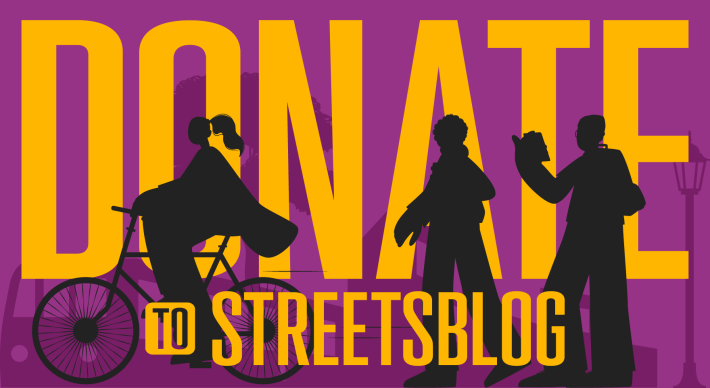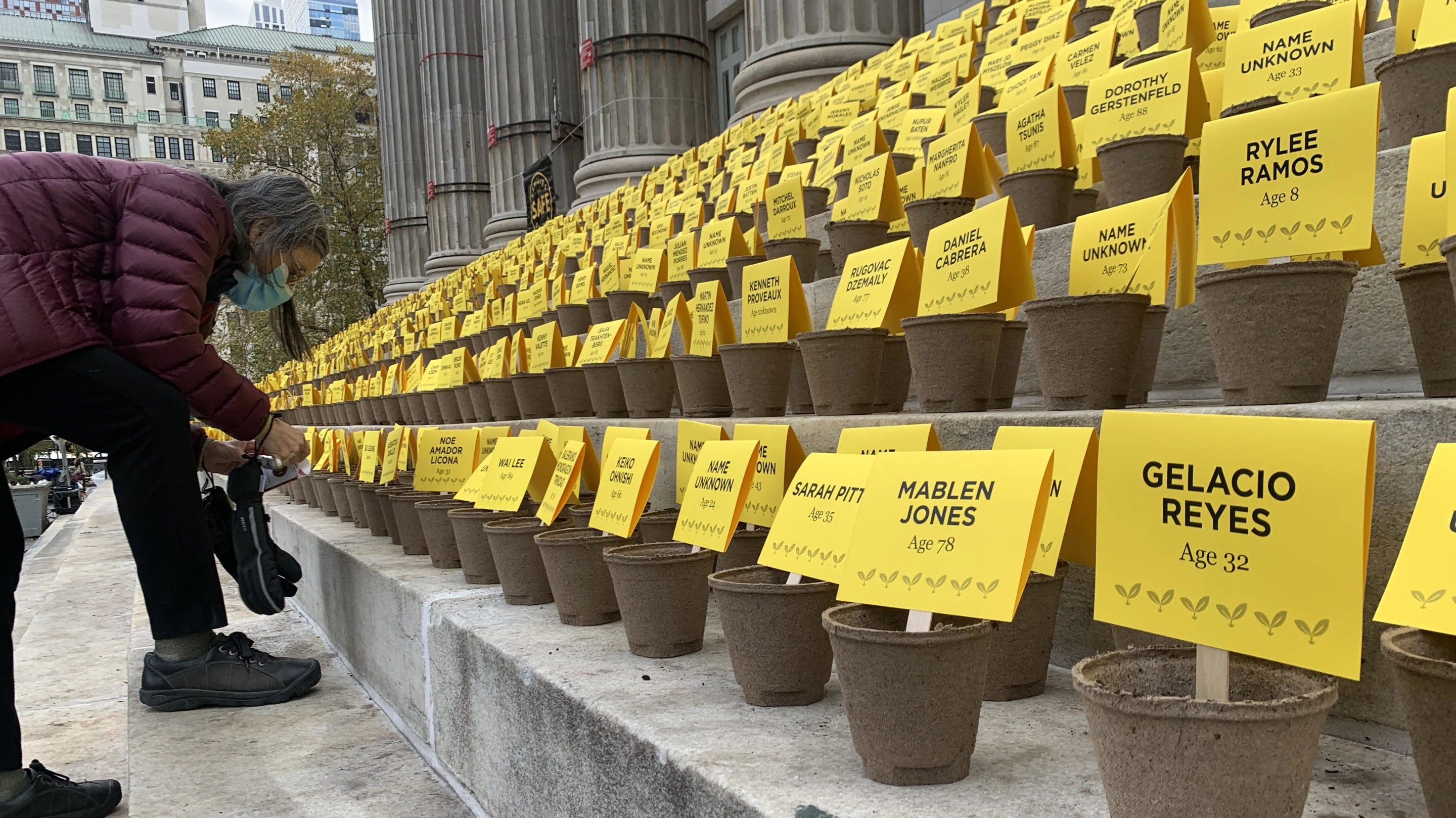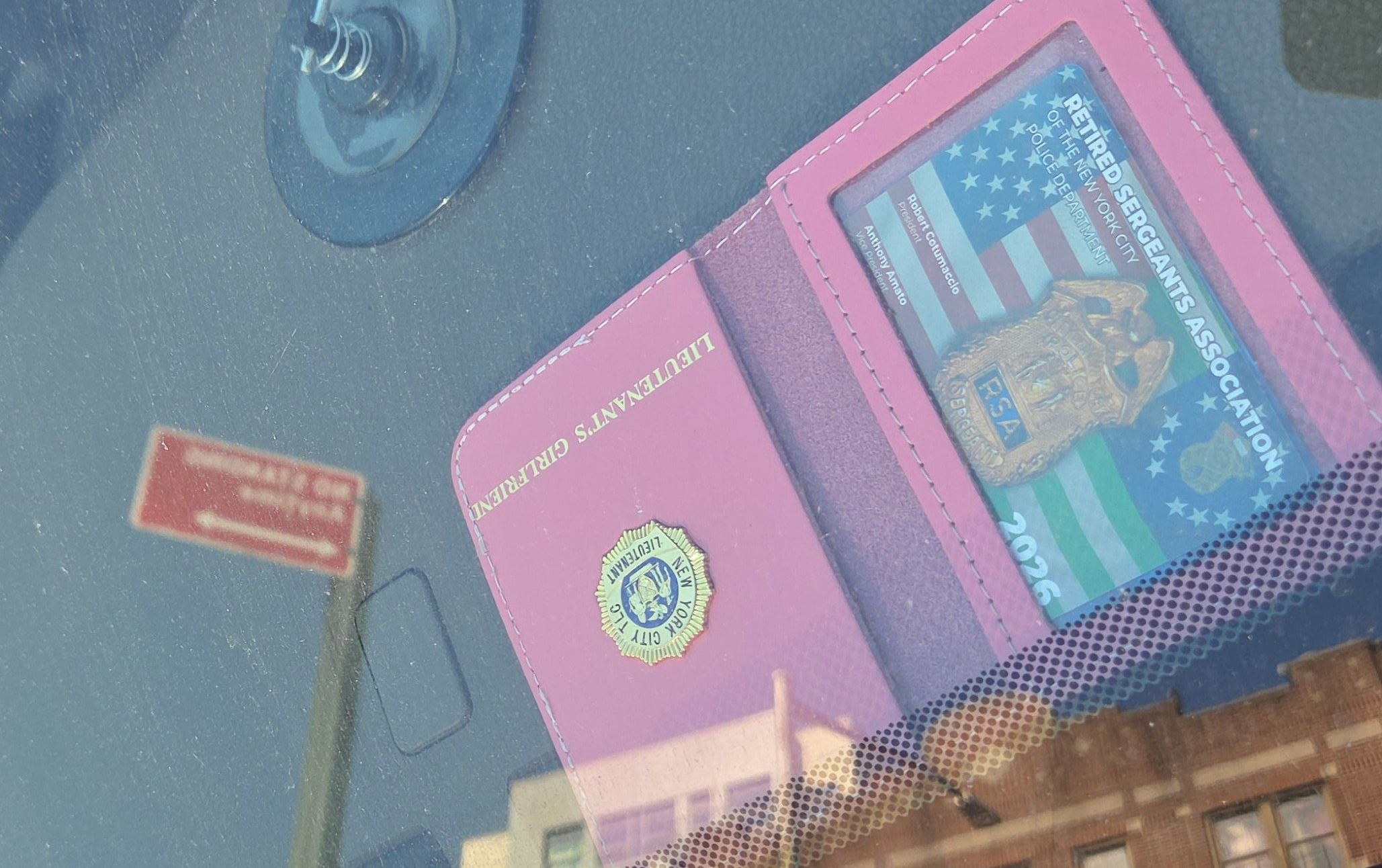Our country's mess of a criminal justice system often obscures meaningful accountability for traffic crash victims and their families. Drivers often face little consequences and show no remorse, at least in public. But killer drivers still find themselves besieged by guilt, and a one-of-its-kind program in New York City is trying to bridge the gap.
Two stories published online on Monday highlighted "Circles for Safe Streets," a restorative justice program that allows traffic crash victims and perpetrators the opportunity to meet face-to-face.
The Times gave a cursory view of the program — speaking to Brooklyn District Attorney Eric Gonzalez and one family who'd gone through the "circle" program. Of the 11 circles that have takes place, all but four involved "surrogates," according to a longer piece in Jewish Currents — drivers in one crash meet with the victim or victim's family from other crashes and vice versa.
The family that spoke with the Times meet with a driver that had killed someone other than their loved one.
“It felt very good hearing her being so full of remorse, feeling so sorry for what she had done,” Carmen Larino said of the experience. “I don’t know if this woman that killed my daughter had that remorse, had that desire, so it felt really good to hear that.”
But Jewish Currents reporter Mari Cohen, herself a one-time victim of traffic violence, actually found the driver who'd struck and killed the husband of a Circles for Safe Streets participant who'd done the program with surrogate.
The woman, Robin Middleman Filepp, ultimately decided that seven years after her husband's death — during which she'd gone through many stages of grief and completed the Circles program with a surrogate — she could not revisit the anger after working so hard to find stability in her husband's absence.
Cohen sees Filepp's experience as a demonstration of the "urgency" of the concept, which is unique to New York City and requires the referral of a prosecutor. So far Gonzalez's office accounts for most participants.
Had the state acted sooner to connect Filepp and the driver who killed her husband, they could have healed faster, or differently, than they had in the first place, Cohen's piece suggests. Whether that has any "policy" benefit may be besides the point, Cohen said.
"I am trying to let go of the idea that a solution has to do everything in order to do something," she wrote. "Even if some harm-doers seem unrepentant, there are more people than we might expect who want to make amends. It’s at least a place to start."
In other news:
- Bus speeds are back down to 2019 levels after a brief pandemic-adjacent surge. (amNY)
- A construction truck driver "decapitated" and killed a 77-year-old in Midwood. (Daily News)
- Everything is wrong with this Axios story about proposals to add speed cameras in DC. Reminder: speed cameras save lives.
- A Bronx road rager who killed a moped rider over the weekend was charged with murder. (Daily News)
- The Times ran an op-ed whose headline calls EVs "the best choice for the climate." Far from it — not driving is the best choice for the climate, as Streetsblog USA's Kea Wilson has documented.
- Parking-free housing proposal in Brooklyn marks first test for the City of Yes. (Brooklyn Magazine)
- Gothamist spoke to New Yorkers who face landlord e-bike bans amid confusion about battery quality and lithium-ion fires.
- And, finally, it's Giving Tuesday and Streetsblog relies on YOUR donations. To donate, click here. Any donation at all will earn you a place on the next day's Honor Roll of donors, joining the hallowed halls of previous benefactors, including those who contributed on Monday: Thanks, Timothy! Thanks, Paul! Thanks, Binyamin!







